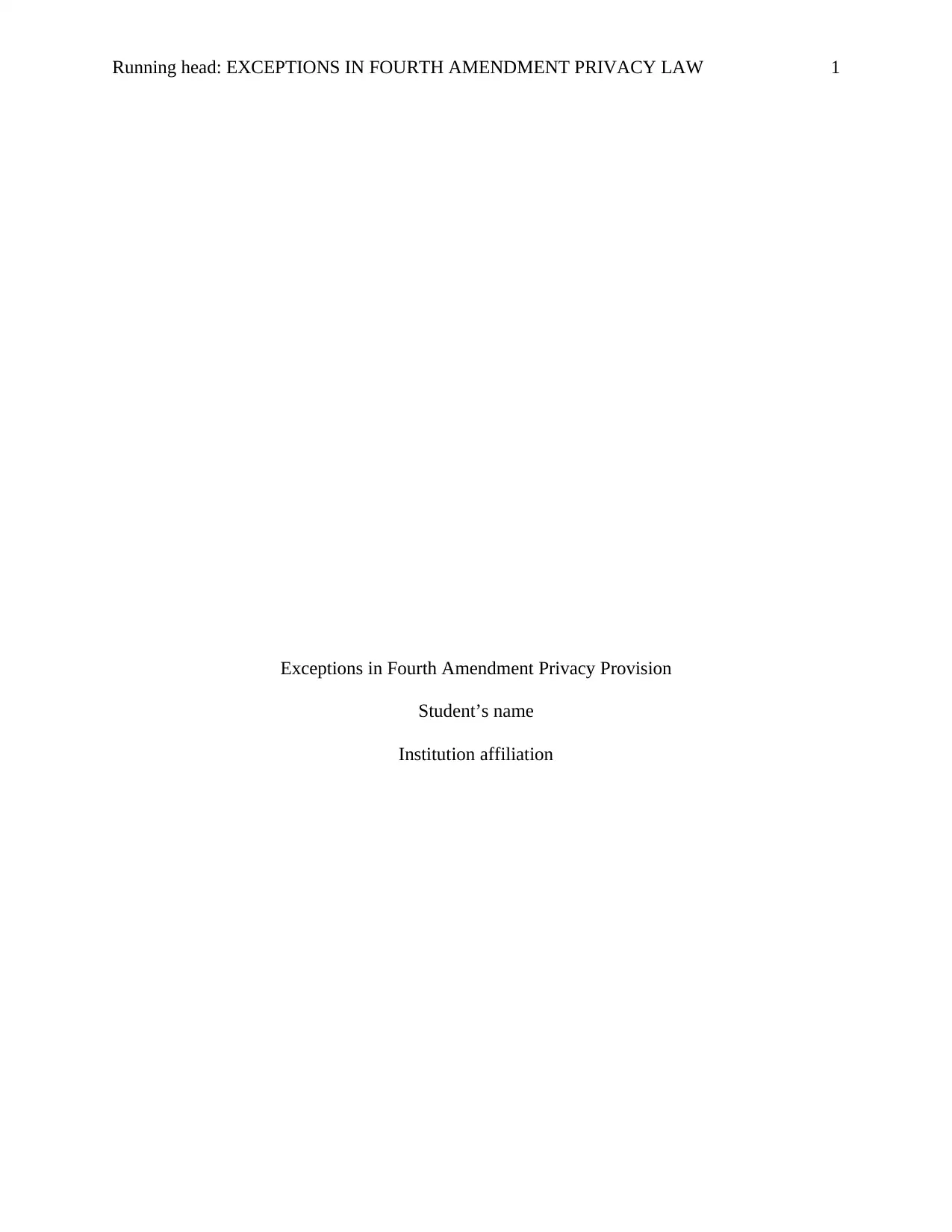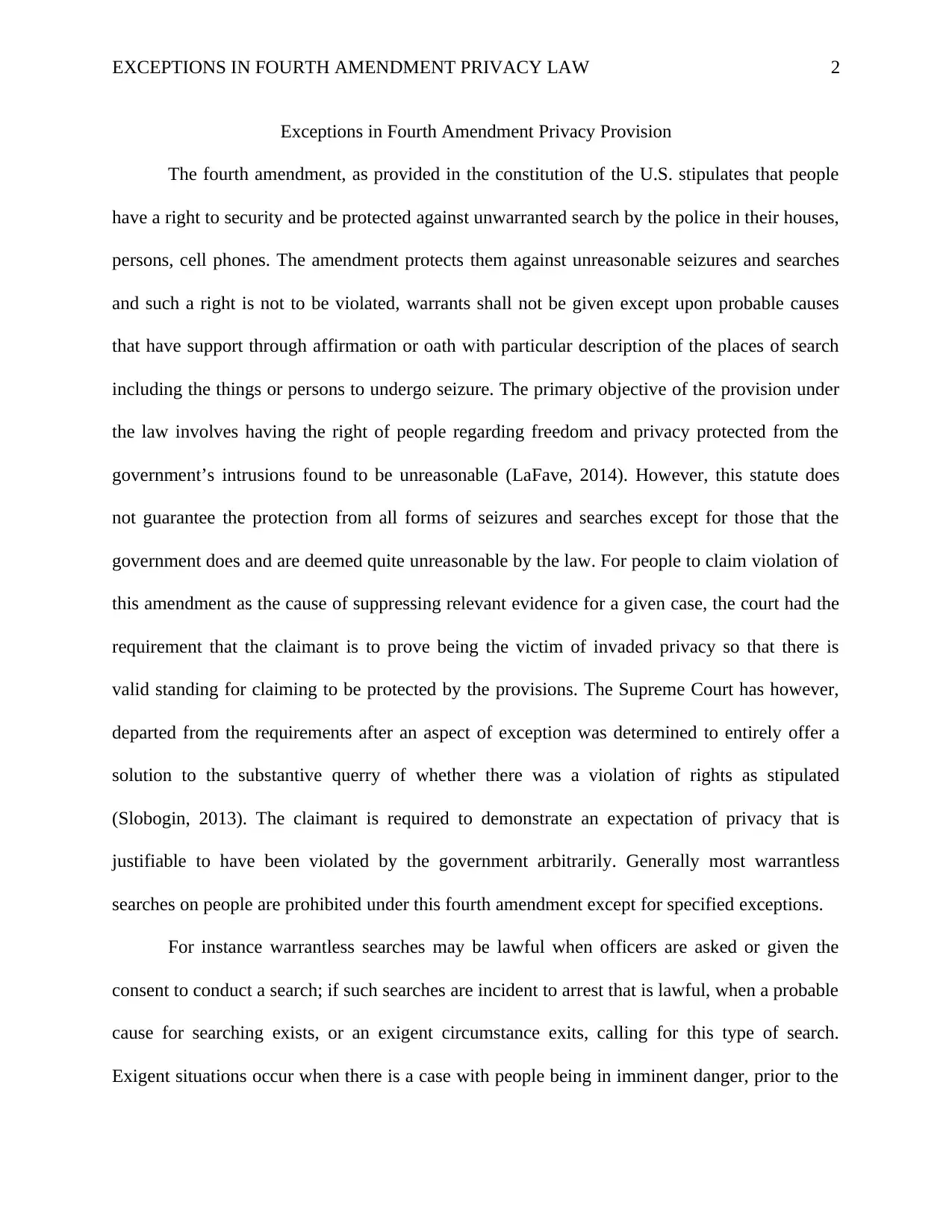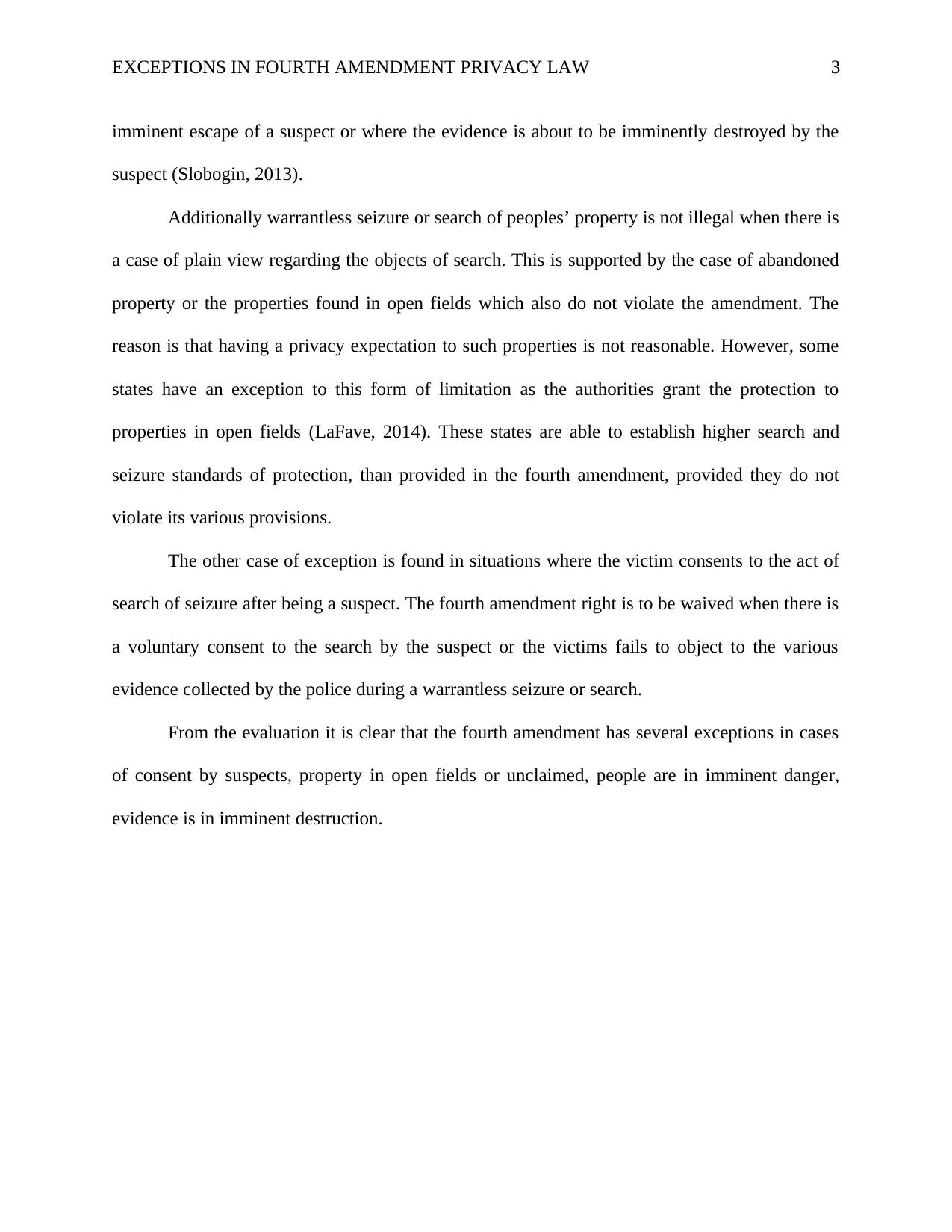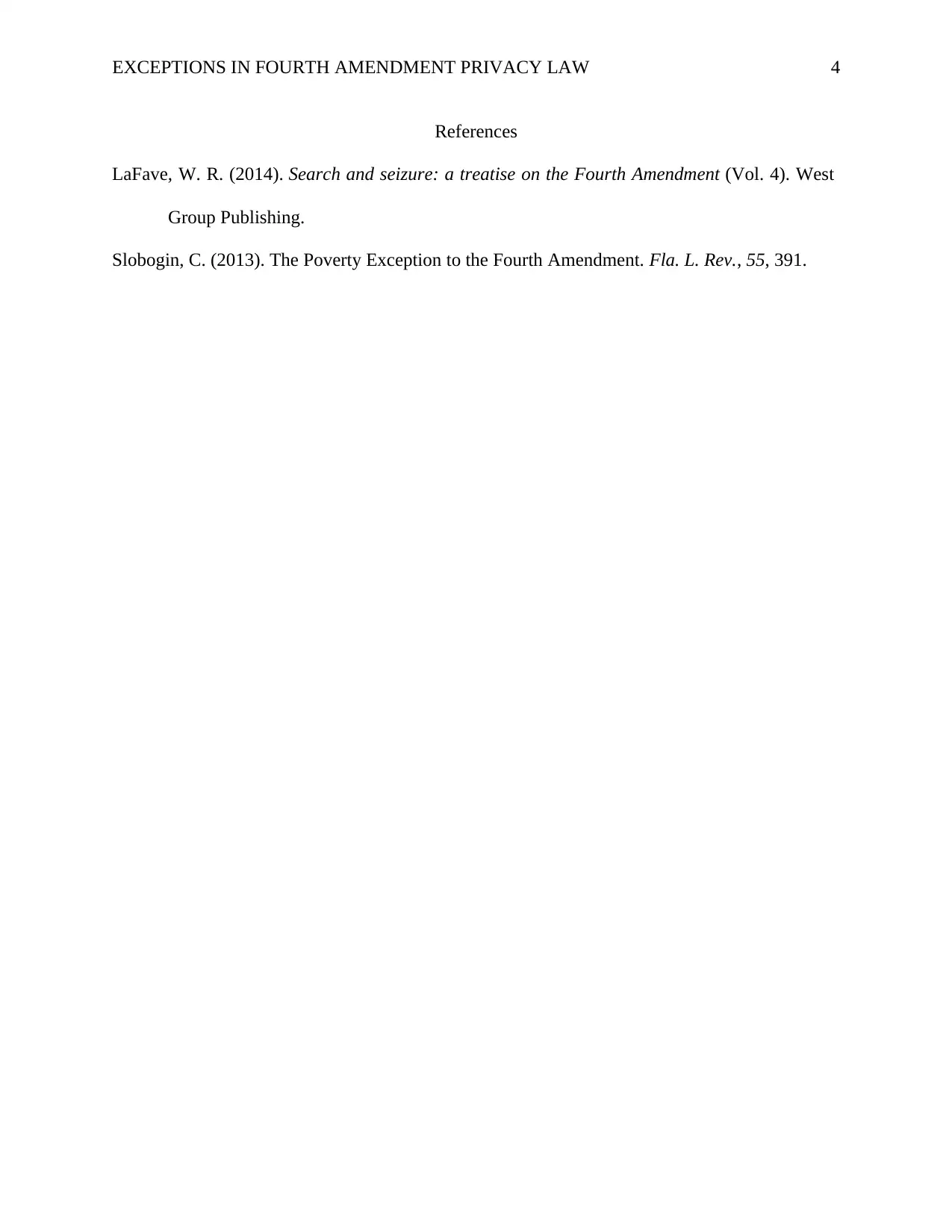Fourth Amendment Privacy Law: Detailed Analysis of Exceptions
VerifiedAdded on 2023/06/10
|4
|716
|174
Essay
AI Summary
This essay examines the exceptions to the Fourth Amendment of the U.S. Constitution, which protects individuals from unreasonable searches and seizures. It details the amendment's core principles and limitations, highlighting that while it generally mandates warrants, several exceptions exist. These exceptions include searches conducted with consent, those incident to a lawful arrest, searches based on probable cause or exigent circumstances such as imminent danger, and the plain view doctrine. The essay also addresses scenarios involving abandoned property and open fields, where privacy expectations are considered unreasonable. Furthermore, it notes that some states may provide greater protections than the Fourth Amendment. The analysis emphasizes that voluntary consent to search is a waiver of Fourth Amendment rights, while failure to object to evidence collection during a warrantless search may also be considered a waiver. The essay concludes by summarizing the main exceptions, including consent, property in open fields, imminent danger, and destruction of evidence.
1 out of 4











![[object Object]](/_next/static/media/star-bottom.7253800d.svg)